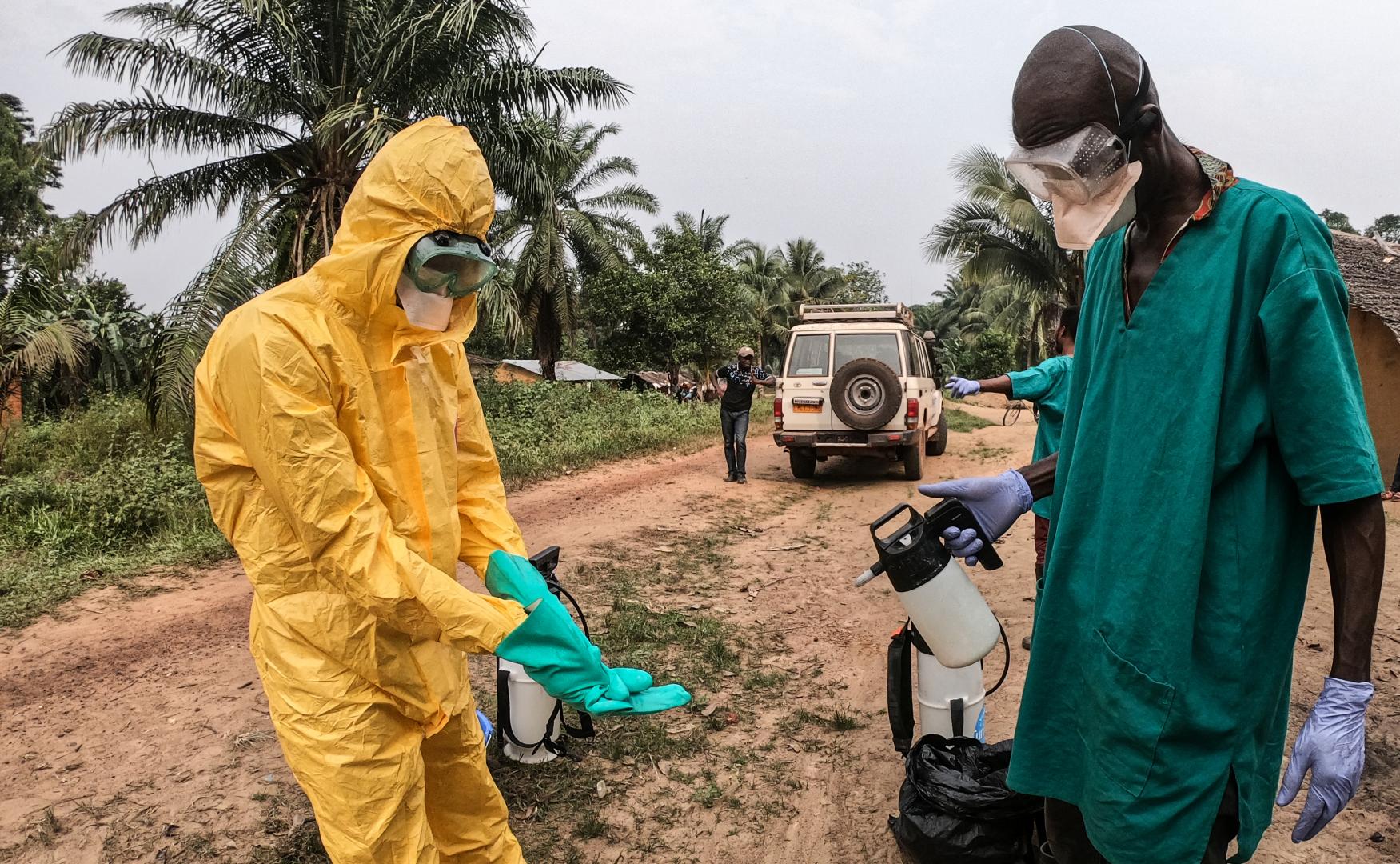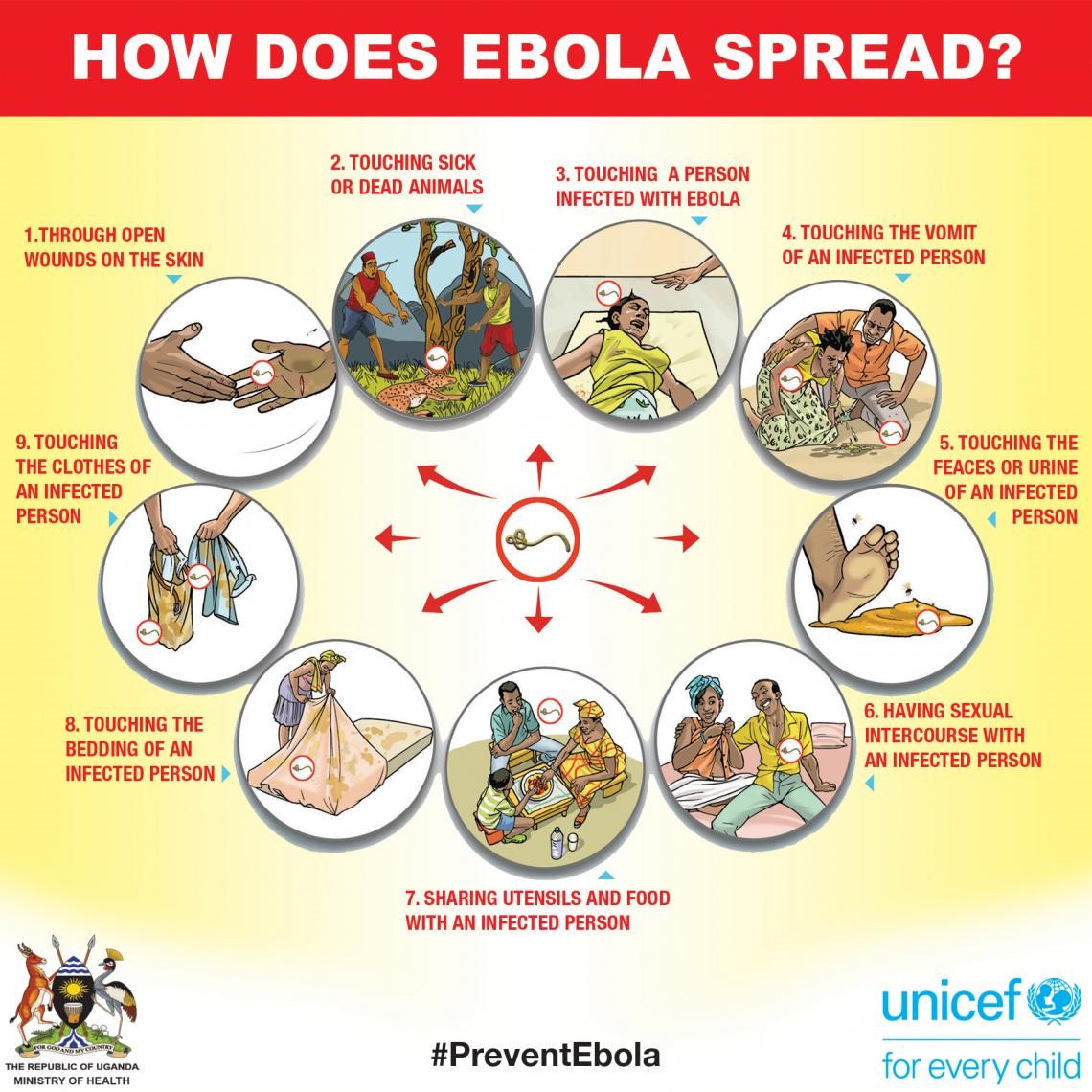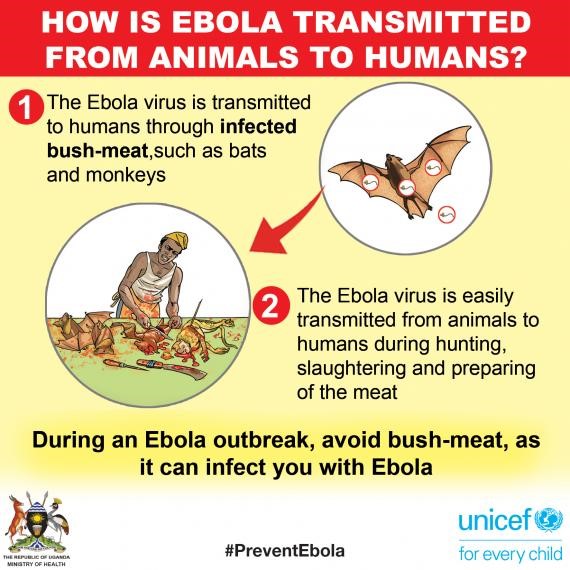
Ebola Virus Disease (EVD)
WHAT IS EBOLA (EVD)?
Ebola Virus Disease (EVD) is a deadly disease with occasional outbreaks that occur mostly on the African continent. EVD most commonly affects people and nonhuman primates (such as monkeys, gorillas, and chimpanzees). It is caused by an infection with a group of viruses within the genus Ebolavirus.
The Ebola virus is a deadly virus that causes hemorrhagic fever in
humans and other primates.
SYMPTOMS OF EBOLA VIRUS DISEASE
Symptoms may appear anywhere from 2 to 21 days after contact with the virus, with an average of 8 to 10 days. The course of the illness typically progresses from “dry” symptoms initially (such as fever, aches, pains and fatigue), and then progresses to “wet” symptoms (such as diarrhea and vomiting) as the person becomes sicker.
Primary signs and symptoms of Ebola often include some or several of the following:
- Fever
- Aches and pains, such as severe headaches and muscle and joint pain
- Weakness and fatigue
- Sore throat
- Loss of appetite
- Gastrointestinal symptoms include abdominal pain, diarrhea, and
vomiting - Unexplained hemorrhaging, bleeding, or bruising
CAN EBOLA SPREAD THROUGH THE AIR?
No, the virus that causes Ebola is not transmitted through the air. Unlike a cold or the flu, the Ebola virus is not spread by tiny droplets that remain in the air after an infected person coughs or sneezes.
Ebola is spread between humans when an uninfected person has direct contact with the body fluids of a person who is sick with the disease or has died. People become contagious when they develop symptoms.
How is Ebola Spread?
- Ebola is spread through direct physical contact with the body fluids of an infected person.
- It is important to note that a person who is infected with Ebola is contagious once he/she has the symptoms of Ebola.
- The Ebola virus is also transmitted to humans through infected bush meat such as bats and monkeys.
- A person becomes infected when the Ebola virus has entered his/her body.
- As it multiplies, the Ebola virus becomes a great risk to all our families and communities.


PRECAUTIONS TO TAKE FOR EBOLA
- Wash your hands frequently.
Regularly and thoroughly clean your hands with an alcohol-based hand rub or wash them with soap and water.
- Maintain Social Distancing
Maintain at least 1 metre (3 feet) distance between yourself and anyone who is coughing or sneezing.
3. Avoid touching eyes, nose and mouth
Hands touch many surfaces and can pick up viruses. Once contaminated, hands can transfer the virus to your eyes, nose or mouth. From there, the virus can enter your body and can make you sick.
4. Practice respiratory hygiene
Make sure you, and the people around you, follow good respiratory hygiene. This means covering your mouth and nose with your bent elbow or tissue when you cough or sneeze. Then dispose of the used tissue immediately.
5. If you have a fever, cough, and difficulty breathing, seek medical care early.
Stay home if you feel unwell. If you have a fever, cough and difficulty breathing, seek medical attention and call-in advance. Follow the directions of your local health authority.
6. Stay informed and follow the advice given by your healthcare provider
Stay informed on the latest developments about Ebola Outbreak. Follow advice given by your healthcare provider, your national and local public health authority, or your employers.
PRECAUTIONS TO TAKE DURING A SAFARI
- As Pamoja Tours and Travel, we regularly and thoroughly ensure that our clients clean their hands with an alcohol-based hand rub or wash them with soap and water. We ensure our travel cars have alcohol-based hand rub and our clients maintain hand hygiene.
- Maintain at least 1 meter (3 feet) distance between yourself and anyone who is coughing or sneezing. As Pamoja Tours and Travel, we ensure that our vehicles are not overcrowded for large groups of tourists. Also, we make sure that all our clients maintain social distancing.
- We advise all our clients during their safari to avoid touching their eyes, nose, and mouth. Hands touch many surfaces and can pick up viruses. Once contaminated,
hands can transfer the virus to your eyes, nose, or mouth. From there,
the virus can enter your body and can make you sick. - We advise all our clients to practice good respiratory hygiene during the safari. Make sure you, and the people around you, follow good respiratory
This means covering your mouth and nose with your bent elbow
or tissue when you cough or sneeze. Then dispose of the used tissue
immediately. - We also ensure that all our clients stay informed about the deadly disease and do everything possible to ensure they follow all precautions. This avoids infecting not only humans but also gorillas, chimpanzees, monkeys and other animals during your safari.
- We have gone ahead to sensitize the communities around us about EVD through our initiative called Pamoja Health Initiative.
Check out some of the safaris we offer:
Planning to visit Uganda, is it safe even when there is a reported Ebola outbreak?
We are coming to the end of the peak tourism (June – Sept) when many people book vacations to Uganda to go gorilla trekking, chimpanzee trekking, safari in Murchison Falls National Park, and do many other tours in Uganda the pearl of Africa.
Many who are traveling to Uganda soon for their trips could be pondering if it is really safe to visit Uganda with this announcement of an Ebola outbreak. As a resident of Uganda, I can confidently say it is safe. The hotspots of the outbreak have been and the health system is doing well to contain the spread.
The affected areas are far from the activity destinations. Ebola may also have a reputation for being dead because of a high fatality rate, and it indeed arouses fear at the thought of it.
It is also easy to protect from Ebola, as only symptomatic cases can transmit, and transmission is through body fluids hence basic social distancing and washing of hands would be sufficient for protection.
Why you may not fear Ebola?
The Ebola virus is not very infectious as compared to the covid 19. The Ebola virus spreads through direct contact with the body fluids of an infected individual. It is not airborne like the covid 19 (sars-cov-2) virus. With washing hands and basic social distancing.
Is there a cure to the Ebola Virus Disease?
There is no cure for the Ebola disease. Therapeutics treat it to support one’s good immune system which help beat the disease. Much like the covid 19 situation.
Is there an Ebola vaccine?
Yes, vaccines against Ebola have been successfully made but are not readily available. One of the vaccines include rVSV-ZEVOB produced in the USA and has recently been used in the DR Congo.
Note that the strain of Ebola virus in the current outbreak in Uganda is the Sudan ebolavirus which has no vaccine. The vaccine rVSV-ZEVOB is for the Zaire ebolavirus in the Democratic Republic of Congo. Research shows the strain Sudan ebolavirus is less transmissible than the Zaire ebolavirus, this offers a bit of relief.
Follow the links below to read more about Ebola:






